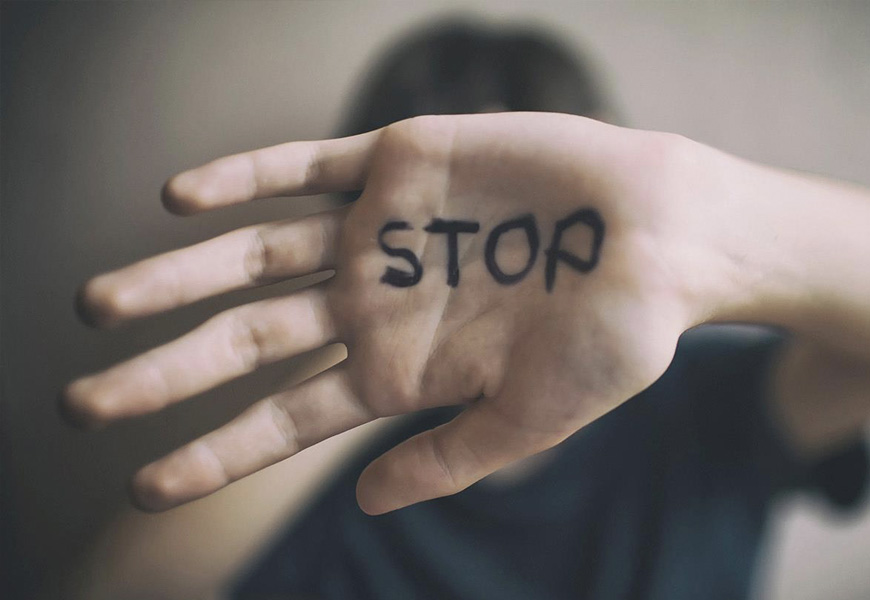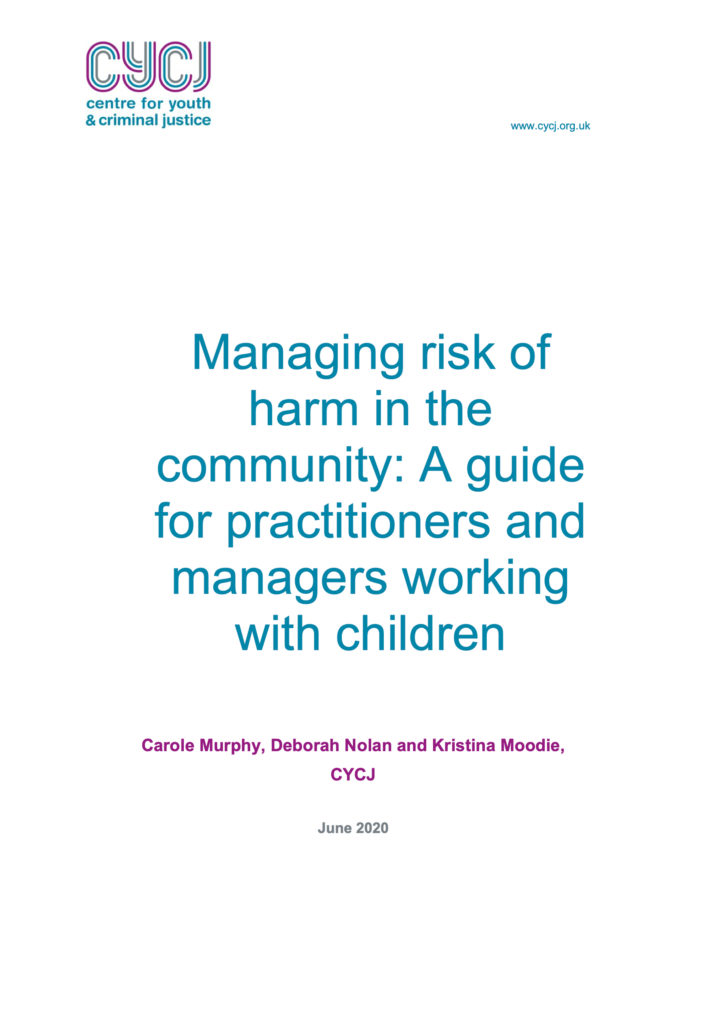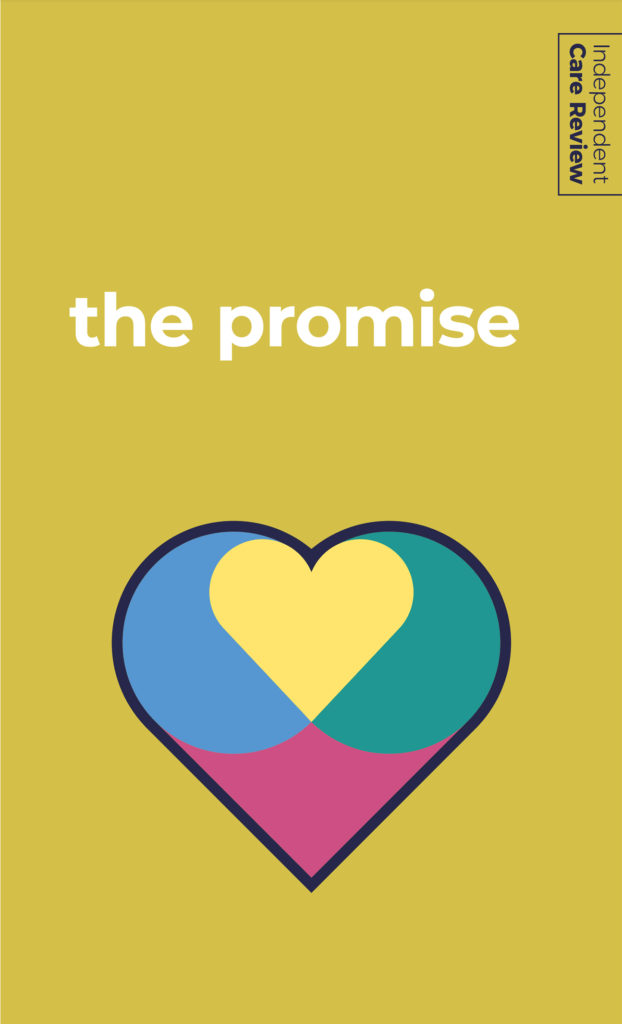Children and Young People's Centre for Justice (CYCJ)
“Depriving a child of liberty, is to deprive that child of his/her childhood”
The University of Strathclyde-based Children and Young People’s Centre for Justice (CYCJ) has joined forces with organisations to raise awareness of the increasing number of children in remand in Scotland – and why we must develop alternative provisions to fulfil our international human rights obligations.
“Taking away someone’s liberty, locking them up…away from home, away from family and friends. It is one of the most serious decisions a state can impose and raises profound ethical questions. It has deep and long-lasting consequences”
The decision to take away anybody’s liberty should never be taken lightly. Children have additional legislative safeguards to uphold their rights and Article 37(b) of the UNCRC states:
“…no child shall be deprived of his or her liberty unlawfully or arbitrarily. The arrest, detention or imprisonment of a child … shall be used only as a measure of last resort and for the shortest appropriate period of time”
Children and young people in conflict with the law are amongst our most traumatised in society and for whom the impacts of being deprived of their liberty, even for very short periods, can be devastating and irreparable. The particular and too often catastrophic risks of remand (being incarcerated/detained without having been found guilty of any offence) to the mental health and wellbeing of children and young people have been tragically identified. The removal of children from their families and communities interferes with factors thought to promote desistance, including developmental processes, positive links with the community, family ties, employment and housing. CYCJ’s Guide to Youth Justice provides useful context to this.
Over the reporting period (01/04/20 – 31/03/21) over 75.5% of Scotland’s children who were in conflict with the law, were on remand in either YOIs or prisons – peaking at 88% in March 2021. The upward trend is continuing into 2021/22 – the pandemic has only served to exacerbate this situation.
“A wee boy tried to kill himself the other day…He [judge] sent him here for seven days when he should be in secure [Care]. He’s just a wee boy not cut out for prison”
Children who have not been found guilty of any offence can and are detained in Young Offenders’ Institutions (YOIs) (and occasionally prisons), alongside those who have been found guilty but have not yet been sentenced to custody. Over time, the proportion of these children, known as being “on remand” has been increasing and now most children in prison settings are in this situation.
Children on remand are treated differently in YOIs – they have the right to be presumed innocent, and to not mix with adults, or those who have been sentenced. However, in practice this means certain supports and opportunities are not made available to them. They tend to spend longer periods of time in their cells than those who have been sentenced, and experience the least amount of support and activities:
“…no contact with friends and family; locked up at 5pm, no information, nothing is getting done, no support, we don’t know what’s going on, no gym, only £2 been added as credit for phone calls for friends and family, lots of tension, prison politics, no video calls, visits or mobile phones in cells – said this was going to happen weeks ago.”
This lack of focus and structure can, and does, have significant impact on their mental health and lead to profound and long-lasting consequences for them, and ultimately for the wider community.
What action is CYCJ taking?
On World Children’s Day 20th November 2020, CYCJ’s then director Claire Lightowler teamed up with Children and Young People’s Commissioner Scotland, Bruce Adamson, to publish a blog calling for an end to locking children up – so that Scotland can meet its obligations to the UNCRC, which is due to be implemented into Scots domestic law in October 2021. This was accompanied by a journal article.
In December 2020, CYCJ shared findings from its research into the use of bail and remand with children in Scotland. This describes the complexity involved in decision-making about the use of bail and remand for children. It demands a “radical re-shaping” of Scotland’s justice system to ensure that it is child-friendly, fair and just for both victims and children who have offended.
Recently, we adapted this work so that it can be accessed by a wider audience. A child friendly report and summary is accompanied by ‘Dan’s Story’, a short animation co-produced with young people helping children, young people and families better understand the issues, emotions and supports involved.
CLICK BELOW TO WATCH DAN’S STORY:
To keep track of the average number of children on remand in YOIs /prison in Scotland, we introduced an accessible spreadsheet which calculates the number of children in YOI/prison, including the percentage of children on remand in YOI/prison, over time.
We also took part in the recent #DemandLessRemand social media campaign led by the University of Glasgow to highlight the unacceptable rates of remand, to show solidarity with people affected by it and to call for an end to the use of remand in Scotland.
Throughout this work, we are advised and supported by members of Youth Justice Voices, our joint participation project with Staff that brings together justice/care experienced young people aged
16-25 in Glasgow to influence change in the justice system.
Where do we go next?
Meeting the needs of children who display behaviours that place themselves or others at risk of harm and who could or should be deprived of their liberty is inherently complex. Ensuring the consideration of all alternative options and the provision of intensive community-based supports that includes consideration of factors is crucial.
To support practice CYCJ has developed a guide detailing the key elements of approaches and responses known to be helpful at an individual, service and strategic level. CYCJ is also piloting a service design approach focused on alternatives to custody. We continue to offer practice development support in respect of individual cases and at service level.
CLICK BELOW TO ACCESS THE GUIDANCE:
There are sadly circumstances where the only way to keep the child and others safe is to deprive a child of their liberty. In these situations, appropriate and sensitive child-focused and trauma-informed settings should be available. Ensuring that in Scotland, children are not in prison-like settings or YOIs, was a promise made by the Independent Care Review and accepted by the Scottish Government. CYCJ are supporting discussions on how this can be made a reality.
CLICK BELOW TO READ THE INDEPENDENT CARE REVIEW ‘THE PROMISE’:
Ultimately, we must work together to do everything we can to uphold the rights of the child, improve life outcomes and ensure the best solutions for the community.
This article is based on ‘Not cut out for prison: Depriving children of their childhood’, a joint blog by Claire Lightowler and Bruce Adamson, 2020.
About CYCJ – CYCJ works towards ensuring that Scotland’s approach to children and young people in conflict with the law is rights-respecting, contributing to better outcomes for our children, young people and communities.
We produce robust internationally ground-breaking work, bringing together children and young people’s contributions, research evidence, practice wisdom and system know-how to operate as a leader for child and youth justice thinking in Scotland and beyond. Find out more by visiting www.cycj.org.uk and following us on Twitter @CYCJScotland.





